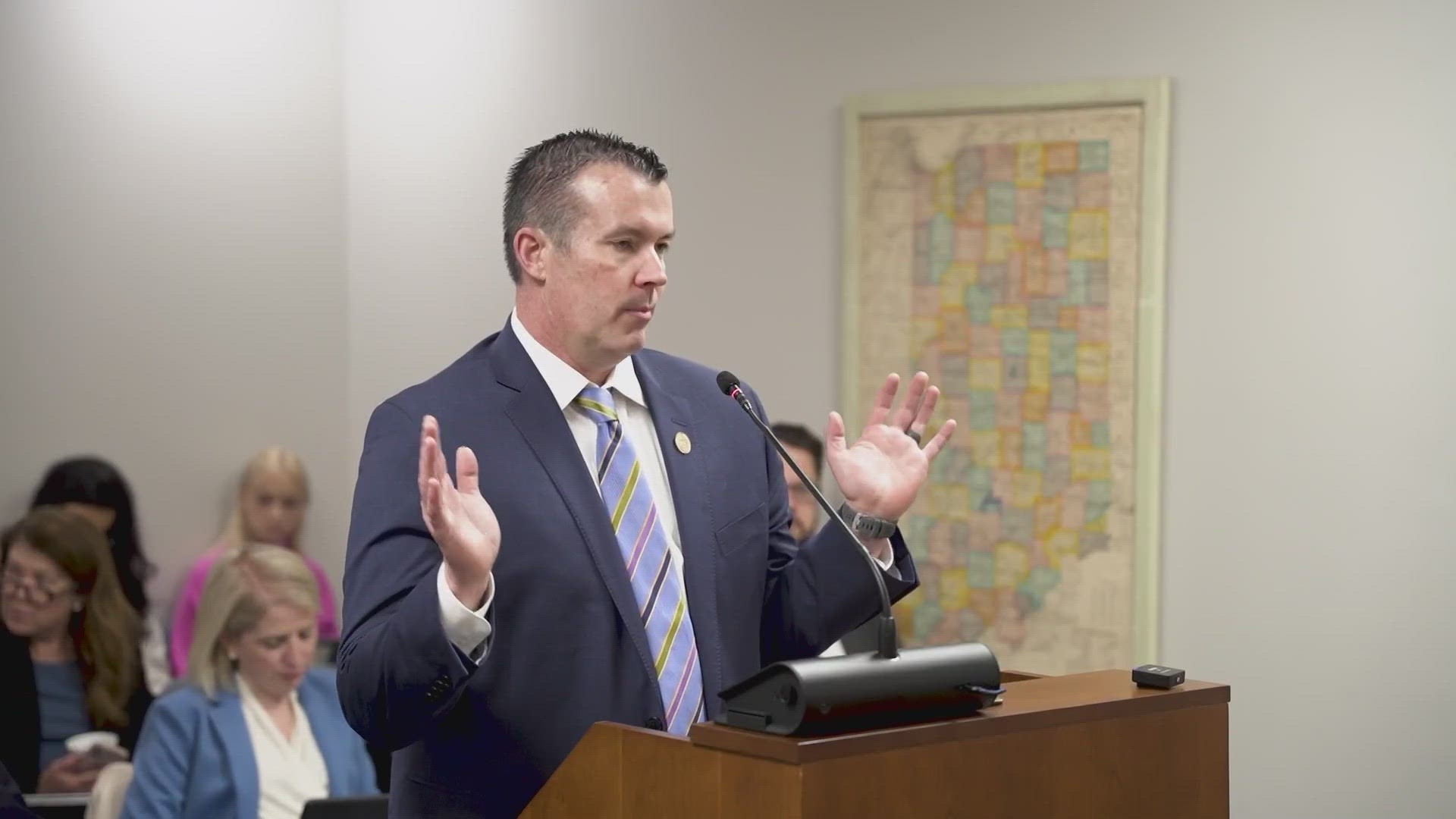INDIANAPOLIS — It’s that time of year, when drivers dodge potholes left behind from the winter months.
If a bill that’s making its way through the Indiana General Assembly becomes law, Indianapolis could be in line to receive more money from the state to help fix potholes and maintain the roads and bridges we drive on every day.
Right now, Indianapolis gets $72 million a year from the state to spend on its roads.
The extra money from Senate Bill 283 would bring that amount up to $80 million. It’s all money that comes from a gas tax Hoosiers pay at the pump.
How much of that gas tax money Indianapolis gets every year for its roads, compared to other cities and towns across the state, is based on how many people live within the area served by the Indianapolis Fire Department. That area has expanded over the years, except when it comes to three townships: Pike, Wayne and Decatur.
All three have their own fire departments and have roads the city of Indianapolis fixes and maintains. And all three have residents who aren’t counted when it comes time for the state to decide how much gas tax money Indianapolis gets every year based on the population of the area covered by IFD.
“It’s like we take almost 200,000 people in Indiana and don’t count them for the purposes of this funding,” said the bill's author, Sen. Aaron Freeman, R-District 32. “We just need to fix the problem and move forward.”
SB 283, which proposes adding the populations from those three townships into the mix to determine how much money Indianapolis gets from the state for roads, has been moving forward.
It already passed unanimously in the Senate and the House’s Roads and Transportation Committee heard the bill Tuesday.
“It’s a pretty simple fix,” said Indianapolis Chief Deputy Mayor Dan Parker.
Except the city’s infrastructure needs are a lot bigger than what $80 million in state funding will cover.
According to Parker, Indianapolis will spend $250 million on infrastructure this year. But a recent study showed the city needs to spend close to $650 million every year just to maintain the roads it has now.
“That study shows we need more money. What it doesn’t show is, 'How do we get there?'” Parker said.
“The single biggest issue I have from my constituents believe it or not, are roads,” said Rep. Bob Behning, R-District 91.
Behning proposed an amendment that offered some potential answers to Parker’s question. Among them, an option where the city of Indianapolis could declare itself a “distressed unit.” Doing so would allow it to take more of its local tax revenue and use it for roads.
That option could allow the state to appoint an emergency manager over the city.
“An emergency manager would have full authority over every aspect of Indianapolis city government and that’s unacceptable,” Parker said.
“It’s not my intent to take over the city of Indianapolis or the management thereof, but to provide more flexibility in access to additional resources to meet their needs,” Behning explained.
Another part of Behning’s amendment proposes raising the wheel tax in Marion County, the yearly tax Indiana vehicle owners pay.
That provision was met with pushback, too.
“It’s a massive tax increase on Marion County residents only, not on anyone else that uses our roads,” said Parker. “As I’ve pointed out, 166,000 people live in another county, but work in Indianapolis."
The committee did not take a vote Tuesday on SB 283 or the proposed amendment. That will come next week. Behning told the committee he would take that time to work on the language in his amendment.

